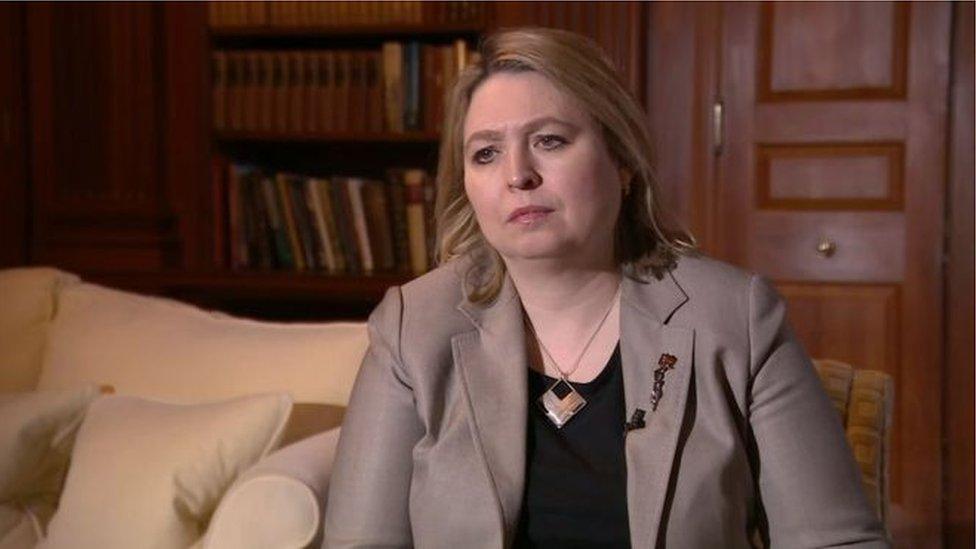Karen Bradley urged to restart Stormont talks
- Published
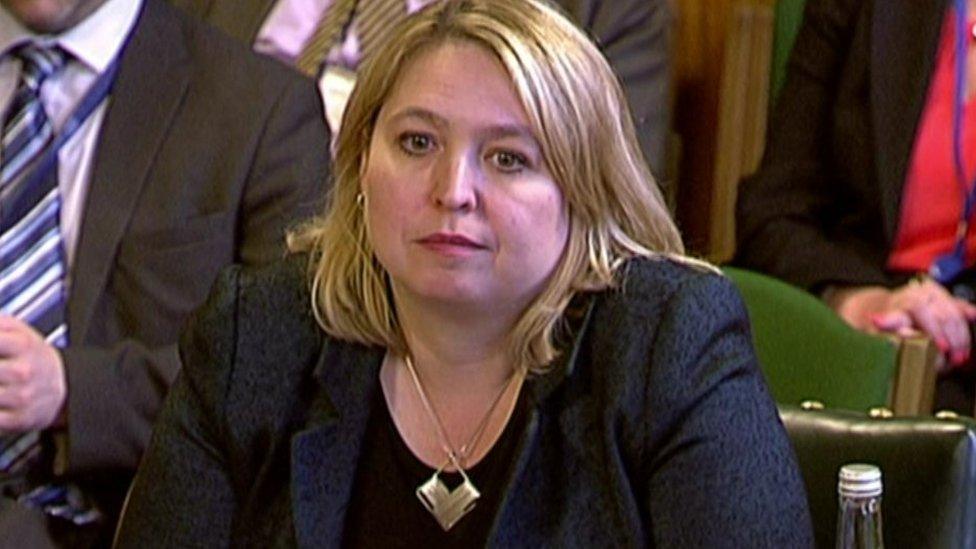
Karen Bradley was urged to take "a more proactive role" in facilitating talks
MPs have urged Northern Ireland Secretary Karen Bradley to "redouble" her efforts to restart talks aimed at restoring devolution.
The call was made by Westminster's Northern Ireland Affairs Committee, which also said she must outline how "urgent" decisions will be made in the interim.
The committee also wants a specific Brexit minister for Northern Ireland.
The NIO said restoring the executive is a top priority.
The NI Affairs Committee chair Andrew Murrison said it was "unacceptable" for political stalemate to become "the new normal".
Northern Ireland has been without a devolved government since January 2017, when a coalition led by the DUP and Sinn Féin collapsed.
Since then, day-to-day government business has been administered by civil servants, in the absence of locally-elected ministers.
'Wait-and-see approach'
Six months ago, the committee began its inquiry into the democratic deficit in Northern Ireland and it published its findings on Tuesday.
The report calls on Mrs Bradley to take "a more proactive role" in facilitating talks between Stormont's political parties so that locally-elected politicians can resume their responsibilities.
It also suggested that in the interim, she should bring forward proposals to increase the pace of ministerial decision making.
"The committee considers that the secretary of state must now move beyond a wait-and-see approach and address issues that require ministerial direction," it said.
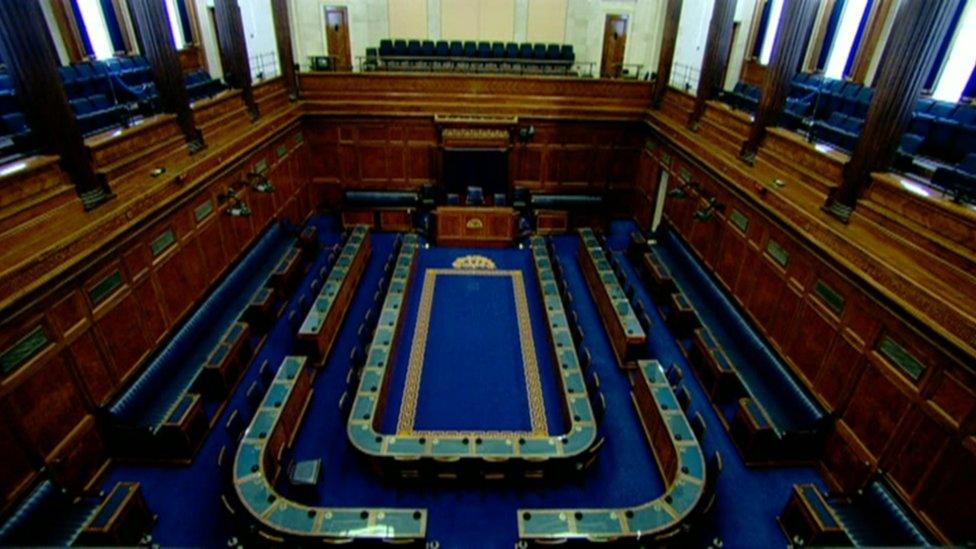
The Northern Ireland Assembly has not carried out its legislative role for almost 18 months
The MPs said Mrs Bradley should submit her proposals before Westminster's summer break.
In response to the report, a Northern Ireland Office spokesperson, said: "The secretary of state is committed to redoubling her efforts to restore the executive.
"As the report notes, this is a top priority."

Analysis: BBC News NI political correspondent, Gareth Gordon:
The committee's report notes a number of areas where it says urgent intervention is required.
It wants legislation to enact the recommendations of the Hart Report on compensating victims of historical institutional abuse.
It wants the implementation of the Bengoa report to transform Northern Ireland's health service.
It calls for the Northern Ireland Policing Board to be reconstituted so it can resume appointing senior staff.
It wants the appointment of a specific Brexit minister to represent Northern Ireland's interests.
It calls for the restoration of Stormont committees, as well as a consultation with all MLAs to explore their role in some form of assembly structure.
The committee noted the significance of a court ruling last week, when a judge said a senior civil servant at Stormont did not have the power to approve a planning application for controversial incinerator in the absence of a minister.
Conservative MP Andrew Murrison, who chairs the Northern Ireland Affairs Committee, said the judgment meant "masterly inactivity in ministerial decision making, which to date has been perfectly understandable, is fast becoming untenable".
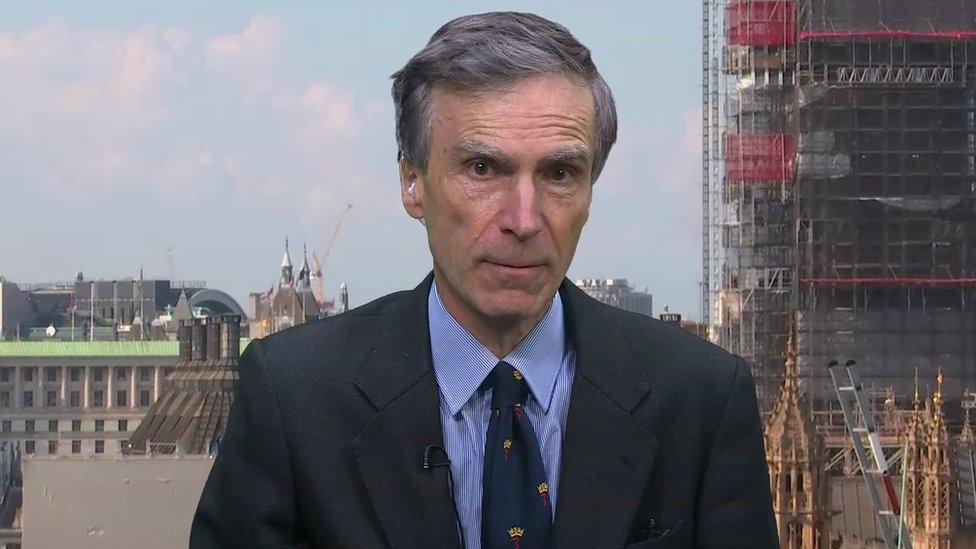
Conservative MP Andrew Murrison chairs the Northern Ireland Affairs Committee
He acknowledged that any decisions made by Westminster on behalf of Stormont must "align with the principles" of the Good Friday Agreement.
The 1998 deal paved the way for power-sharing between unionists and nationalists and Mr Murrison praised its "transformative effect" on Northern Ireland.
However, he pointed to one uncontroversial policy area where Mrs Bradley could take action in the absence of devolution.
Mr Murrison said last year's public inquiry into historical intuitional abuse produced policy recommendations "that were broadly welcomed across the community".
The chair of that inquiry, Sir Anthony Hart, recommended compensation, a memorial and a public apology to abuse survivors.
The Northern Ireland Affairs Committee (NIAC) said Mrs Bradley must do "all she can to end the long wait for justice of victims".
It called on her to bring legislation through Westminster to enact the the Hart Report recommendations "without further delay".
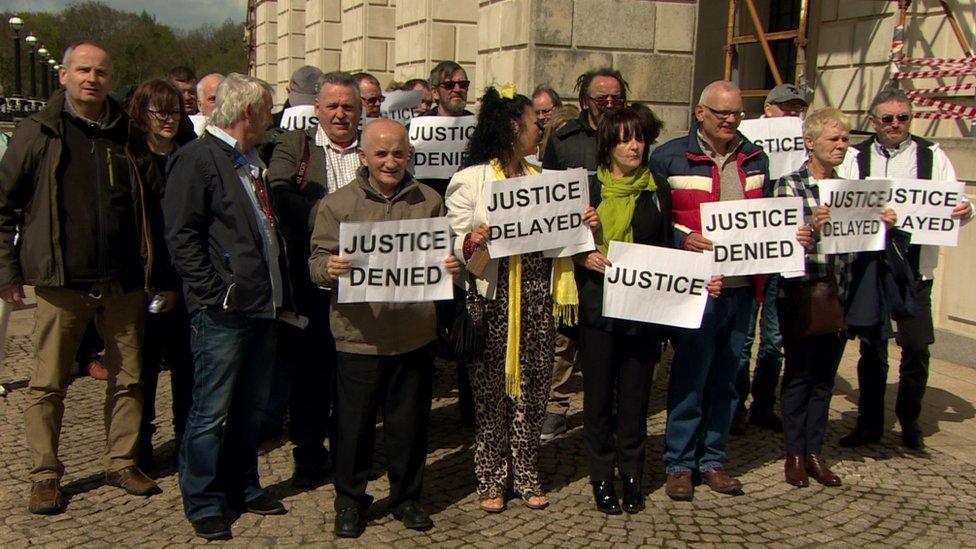
Abuse survivors have held protests calling for last year's Hart Report to be implemented
The MPs said that if the secretary of state had to increase her level of intervention in Northern Ireland, then there was a duty to ensure "cross-community scrutiny".
They suggested bringing back Stormont committees - a structure that allows MLAs to hold government ministers to account.
The committee also wants all MLAs to be consulted to "explore their role in some form of assembly structure".
The Northern Ireland Assembly has not carried out its legislative role for almost 18 months.
The latest round of talks aimed at restoring Stormont fell apart on Valentine's Day, after the DUP and Sinn Féin disagreed over a "standalone" Irish language act.
If Stormont is restored, the report recommends a public consultation on ideas to strengthen the institutions, to be carried out within six months.
NIAC membership also consists of four other Tory MPs; four Labour MPs; three DUP MPs and Independent Unionist MP Lady Sylvia Hermon.
- Published17 May 2018
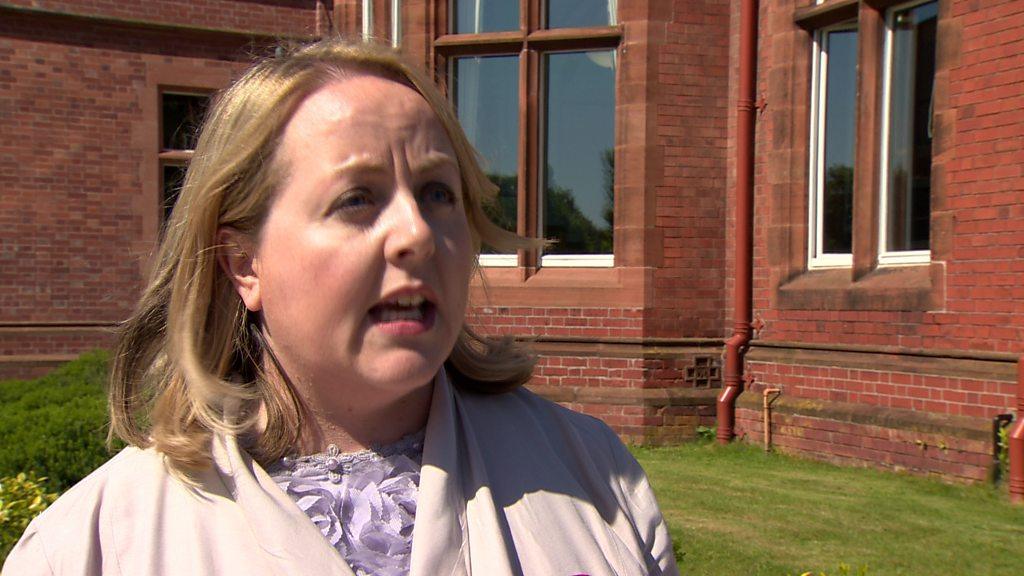
- Published15 May 2018
